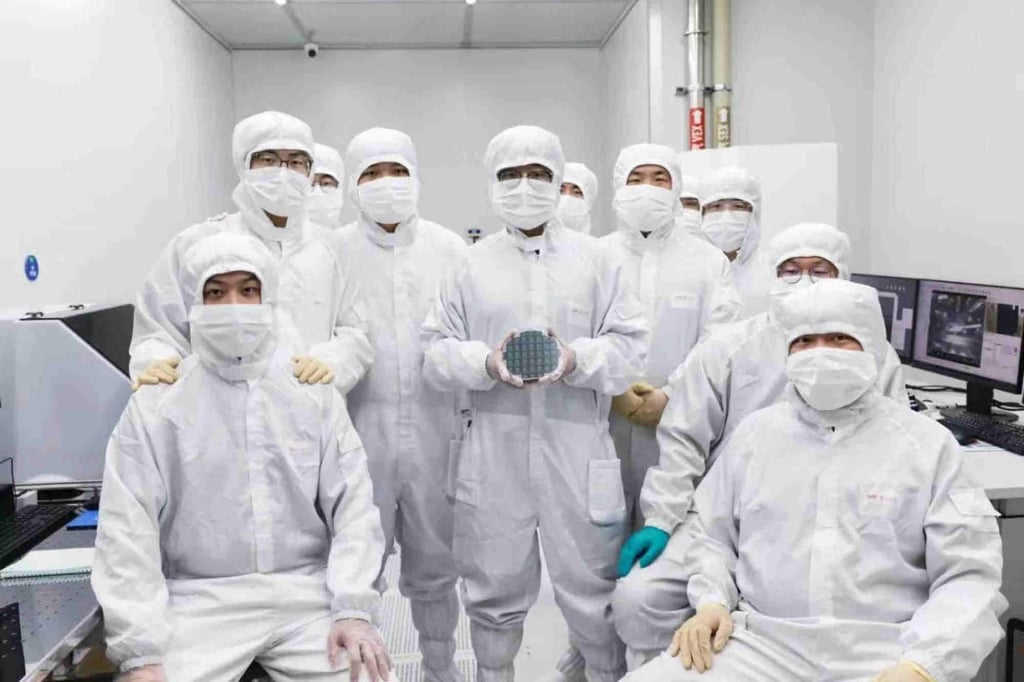Published: 2:00pm, 12 Jun 2025Updated: 2:07pm, 12 Jun 2025
As China joins the international drive to mass produce high-performance photonic chips, an industry pioneer said the technical performance of its chips will position the country for major advances in artificial intelligence (AI), 6G and quantum computing.
Advertisement
Shanghai Jiao Tong University Chip Hub for Integrated Photonics Xplore (CHIPX) announced on June 5 that it had begun producing 6-inch (15.2cm) wafers for thin-film lithium niobate (TFLN) photonic chips, which rely on light – or photons – rather than electrical signals for information transmission and processing.
While this is China’s first pilot production line for photonic chips, Europe and the US are already established in the field. Dutch company SMART Photonics last year upgraded its line to process 4-inch InP wafers, and California-based PsiQuantum revealed in February that it was adapting a 300mm silicon photonics line.
China’s pilot production line, built on the new TFLN material, may have come later but it is already showing gains in terms of technical performance by overcoming a global limit for high-speed optical links.
TFLN is an emerging high-performance optoelectronic material known for its ultra-fast electro-optic effect, high bandwidth and low power consumption. But its brittle nature has hindered large-scale manufacturing.

“Establishing this stable production line is the result of nearly 15 years of effort,” said Professor Jin Xianmin, director of CHIPX.

